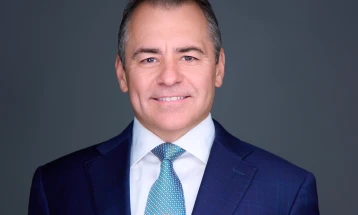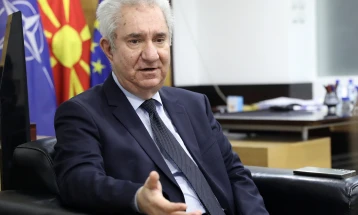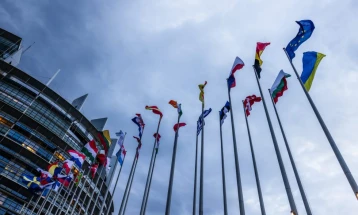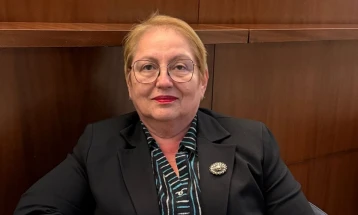MEPs threaten legal action over EU billions for Hungary
- MEPs have called for further steps to prepare a court case against the European Commission over the unblocking of billions of EU funds for Hungary. In December, the Commission released funds to win Hungary’s support for Ukraine. The European Council is due to discuss the financial aid to Kyiv again at an extraordinary summit in February.
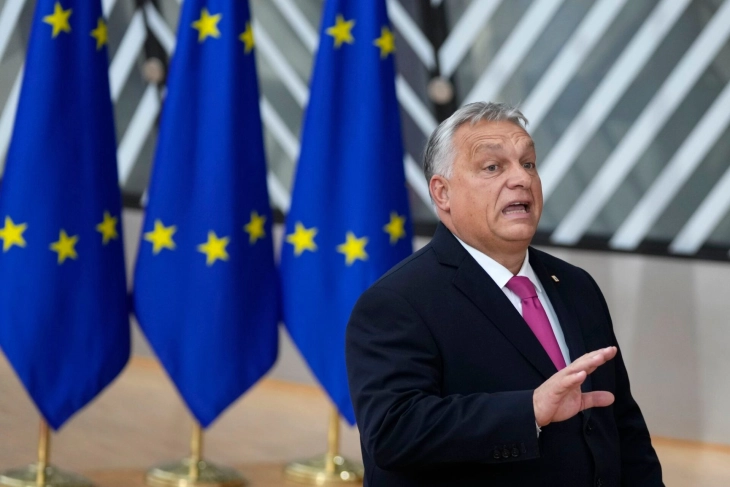
enr - Brussels
23 January 2024
MEPs have called for further steps to prepare a court case against the European Commission over the unblocking of billions of EU funds for Hungary. In December, the Commission released funds to win Hungary’s support for Ukraine. The European Council is due to discuss the financial aid to Kyiv again at an extraordinary summit in February.
In a resolution passed on Thursday, EU lawmakers called on the European Council to take the next step against Hungary under Article 7.2 of the EU treaty, which could ultimately lead to the country being stripped of its voting rights.
It also instructs the Legal Affairs Committee and the Parliament’s Legal Service to investigate the release of the funds and determine if legal action against the European Commission is required. If there are indications of breaches of EU law, the case will be referred to the European Court of Justice.
In December, the European Commission released around 10 billion Euro in frozen EU funds to Hungary despite ongoing allegations of abuse of power and corruption in the country. The European Commission unlocked the money for Budapest last month as Brussels looked to win Hungarian Prime Minister Viktor Orbán’s backing for more support for Ukraine. Hungary still vetoed the agreement at the EU leaders’ last summit in December.
Hungary was the only nation that opposed the consensus found by the other 26 partners to review the multiannual financial framework (MFP) for 2021–2027. Besides aid to Ukraine, it also includes a reinforcement of immigration and neighbourhood policy, strategic investments and support in the face of natural disasters.
The failure to commit more aid to prop up Ukraine’s budget over the next four years dealt a blow to the country, even after the EU took the symbolic step of agreeing to open membership talks.
Hungary risks losing voting rights
Parliament argued that the Commission was wrong to allow 10 billion Euro in funds from the European budget to be disbursed to Hungary, while acknowledging that the judicial reform promoted by Viktor Orbán’s government represented sufficient progress in improving the independence of justice in this country. In a parliamentary debate about the December summit on Wednesday, MEPs from several political groups sharply criticised the December release.
Last May, Hungary approved a new law on justice reform. “This is what we asked for, and Hungary delivered,“ European Commission President Ursula von der Leyen told the European Parliament earlier this week.
However, the Parliament is concerned that this money could reach Hungary without adequate control measures in place to ensure sound financial management and protection of the European budget. It also considers that the recent judicial reform is not sufficient to dispel its doubts.
Von der Leyen, however, reassured MEPs on Wednesday that Brussels will not release more funds to Hungary while Budapest does not resolve its deficiencies regarding the rights of the LGTBIQ+ community, academic freedom and right to asylum – the issues that are currently causing the other 20 billion Euro to remain frozen.
A group of EU lawmakers from across the political spectrum believes that if the Commission releases more funds to Hungary without the conditions being met, the European Parliament would reserve the right to take further political and legal action.
In the face of mounting pressure over Hungary’s alleged violations of the rule of law, the country also risks being stripped of its voting rights. The resolution passed in Parliament called on the European Council to explore this possibility under the on-going Article 7 procedure on the rule of law.
“At the moment, we, the European Parliament, are not asking for stripping Hungary of its voting rights, but we are asking the Council to initiate such examination,“ said Romanian MEP Siegfried Mureșan.
The office of the Slovenian Prime Minister Robert Golob sees the escalation as a bad scenario for both the EU and Hungary. “We do not want to see any country being stripped of its rights, but at the same time the EU as a whole cannot be held hostage by one member state, Hungary or any other,“ the office wrote in response to questions from the Slovenian Press Agency (STA).
Belgian Foreign Minister Hadja Lahbib, whose country currently holds the presidency of the EU Council, said that for her the rule of law is at “the centre of its political action“ and announced that her country will organise a new hearing about Hungary within the framework of the rule of law file.

Budapest not isolated after all?
After meeting his ally Slovakian Prime Minister Robert Fico on Tuesday, Orbán said Budapest would be willing to contribute its fair share to a new aid package, provided it happens outside the bloc’s budget.
“Hungary is ready to support Ukraine, it will do so from its own budget, it does not want to take out loans jointly with anyone, and it does not want this issue to be included in the [EU’s] budget,“ the Hungarian prime minister said. “If we want to help Ukraine… we must do so without damaging the EU budget,“ he added.
Both leaders have been critical of sending aid to Ukraine, although Fico supported the package Orbán blocked in December. Speaking alongside Orbán, Fico said Hungary’s proposal is “rational and meaningful“.
According to media reports, Italian Prime Minister Giorgia Meloni is trying to convince Orbán to lift his veto in return for the membership of his political party Fidesz in the European Conservatives and Reformists group (ECR).
Orbán maintains ties with Kremlin
Orbán is the only EU leader who has maintained close ties with the Kremlin following Russia’s invasion of Ukraine. However, at the EU leaders’ summit in Brussels last month, he did not stand in the way of a decision to start negotiations with Ukraine on joining the EU.
Russia praised Hungary for blocking the aid, with Kremlin spokesman Dmitry Peskov saying Hungary “in contrast to many European countries, firmly defends its interests, which impresses us“. Moscow was far more critical of the decision by the EU to open accession talks with Ukraine and fellow former soviet state Moldova, and make Georgia a formal candidate to join.
In October, Hungary also threatened to veto Bulgaria’s Schengen accession if the country did not abolish the transit fee for Russian gas. In December last year, however, Bulgaria eventually scrapped this fee. Bulgarian Prime Minister Nikolay Denkov highlighted the location from which Hungarian Foreign and Trade Minister Péter Szijjártó raised the issue – Beijing, where a Hungarian government delegation was participating in the third edition of the Belt and Road Forum for International Cooperation and where Orbán held a meeting with Russian President Vladimir Putin. “One might wonder if there are other interests involved,“ Denkov noted.
To be continued
Following the European Parliament’s vote on the resolution on Thursday, the matter will now go to the European Parliament’s Legal Affairs Committee, which will have to prepare the case with the institution’s legal services and decide whether to file a lawsuit.
Meanwhile, EU leaders will reconvene on February 1 for another summit aimed at overcoming Orbán’s veto on the funding for Ukraine. The president of the European Council, Charles Michel, decided to postpone the decision in order to convince Hungary to join the agreement or find a solution that would allow it to move forward without its support.
Budapest has signalled it could agree to the aid if it is given the chance each year to veto further payments. EU officials say that if they cannot win over Hungary, the other 26 member states will look to provide cash outside the EU’s budget, but this is likely to be for a shorter timeframe.
This article is published weekly. The content is based on news by agencies participating in the enr.


